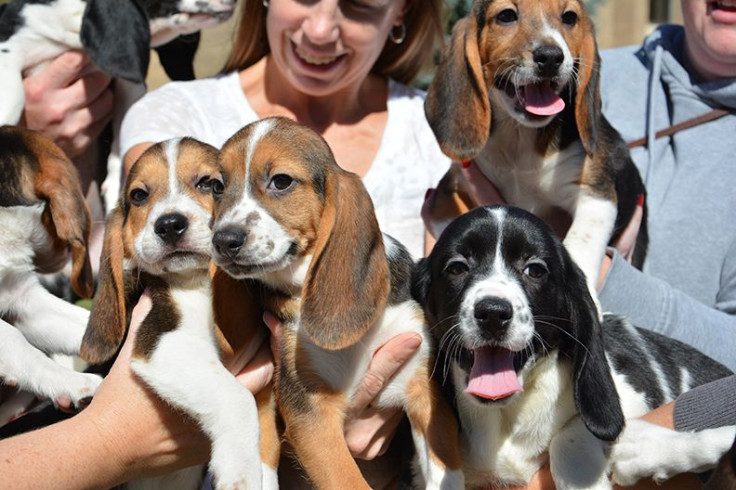In Vitro Works For Canines, Too: First Puppies Born Through The Process This Summer

In vitro fertilization has been helping human couples with reproduction since the 1970s. The process of fertilizing an egg with sperm outside the body, however, has just been used successfully in a different species: canines. Seven puppies were born through IVF this summer, thanks to a team of researchers from Cornell University’s College of Veterinary Medicine. The process, among several benefits, may help preserve endangered canine species, such as the African panda dog.
The puppies, a mix of cocker spaniel, beagle, and Labrador, are the first canines in the world produced by IVF. Efforts to complete the process with dogs had repeatedly failed up until now, according to Dr. Pierre Comizzoli, a reproductive physiologist for the Smithsonian Conservation Biology Institute in Front Royal, Virginia. The new
“The biology of the dog is really, really different than humans,” Comizzoli said. Dogs go into heat only once or twice a year, releasing immature eggs instead of the mature eggs needed for IVF. Their pregnancies also only last for two months, as opposed to the nine needed for a human pregnancy. Comizzoli described the birth of the puppies born in July as a “huge breakthrough.”
The research team “found that if they left the egg in the oviduct one extra day, the eggs reached the stage where fertilization was most likely to occur,” according to a press release. They also altered the cell culture where the egg was fertilized, and their efforts paid off.
“We each took a puppy and rubbed it with a little towel and when it started to squiggle and cry, we knew we had success,” Dr. Alexander Travis, who runs the lab at the Baker Institute for Animal Health at Cornell University’s College of Veterinary Medicine, said to AP. “Their eyes were closed. They were just adorable, cute, with smooshed-in faces. We checked them to make sure they looked normal and were all breathing.”



























